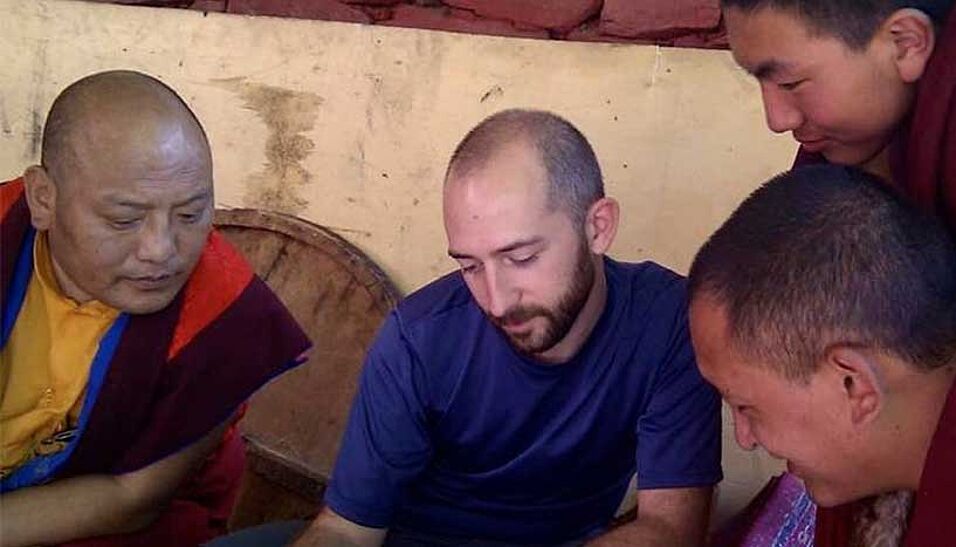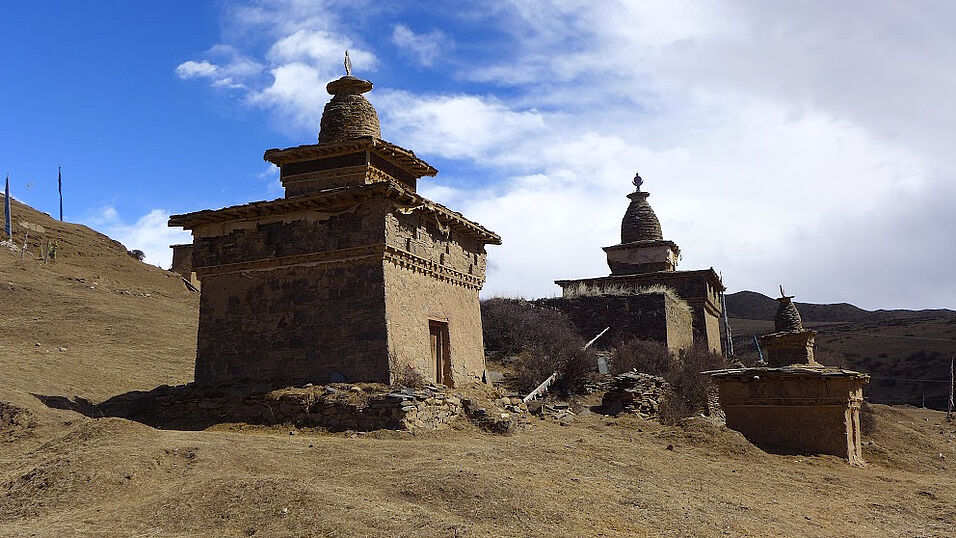- Why did you decide to go to Southwest University for Nationalities, in Chengdu? In how far was this research stay important for your project?
The Southwest University for Nationalities is one of the very few centers offering some basic courses of Amdo Tibetan, a language that, besides Chinese, was very important for my fieldwork. In fact, even though I have to work on textual material in classical Tibetan language for most of my research, I need the instructions of the actual holders of the Jonang tradition if I want to have a proper understanding of these texts. Thus, my period there was not only fundamental for collecting sources, but also for studying a little bit the local form of spoken Tibetan. Based in the city of Chengdu, I could relatively easily reach monasteries in the areas of Dzamthang, Barkham and Ngawa, and carry on my fieldwork there. Chengdu itself has a big Tibetan quarter where it was possible to meet monks and renown teachers, not only for a cup of butter tea, but also for some guidance in my studies.
- What do you remember especially from your time in Chengdu and Eastern Tibet? What was especially surprising?
In particular, I remember the time I have spent in Gonpalakha, a small monastery near Dzamthang. As often, it was not so easy to get the information I needed and I had to chase the main teacher of the monastery until he found some time for me. In these situations, despite all your planning, you typically find yourself doing things that are quite far from your research: painting statues, cooking food for children, repairing DVD players and computers for monks. I also remember the kindness of the local people and how everyone was ready and happy to host me in his house and to share what he had.
- Do you have any suggestions for other PhD-researchers for the preparation of research stays abroad?
Of course, it depends on their studies and on how they are going to spend the research period. If it involves fieldwork and traveling, I would recommend planning their research stay in detail, but I also think it is very important to learn to be flexible and to adapt to every situation without forgetting the aims of your research.
- Filippo Brambilla is a PhD candidate in Tibetan and Buddhist studies at the University of Vienna, under the supervision of Prof. Klaus-Dieter Mathes. His research focuses on the exposition of the Empty of Other Madhyamaka within the modern and contemporary Jonang tradition. Thanks to the Marietta Blau Grant, the young researcher was based in Chengdu and carried on several fieldwork periods in monasteries of Eastern Tibet from September 2013 to August 2014. Filippo has a M.A. in Languages and Cultures of Easter Asia, his major was Chinese language, but he has also studied classical Tibetan language and a bit of Amdo Tibetan dialect.


